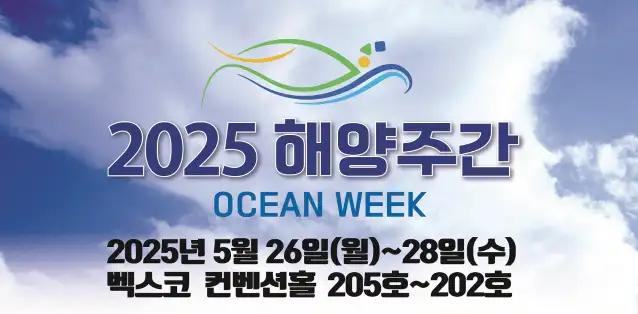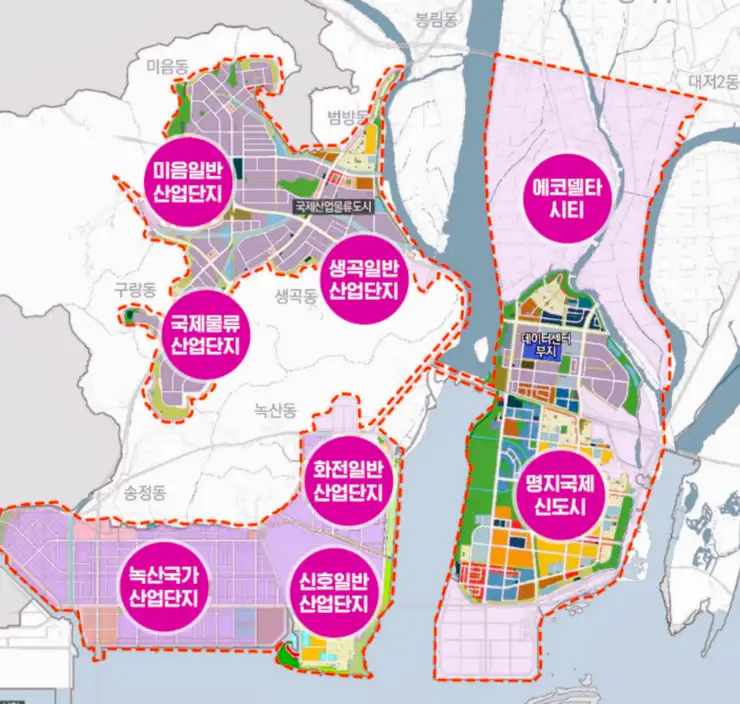Busan Expands Maritime Vision Through 2025 Ocean Week
The 2025 edition of Ocean Week features discussions on Arctic shipping routes, marine innovation, and ocean education, reinforcing Busan’s efforts to become a well-rounded maritime city.

The city of Busan is hosting the 2025 Ocean Week from May 26 to 28, positioning itself once again at the forefront of global discussions around marine industries, sustainability, and ocean governance. This annual event, now in its third year, serves as a platform for collaboration among public institutions, academic researchers, industry leaders, and civil society organizations. Held at BEXCO and other locations across the city, the event offers a space to explore solutions for the future of the ocean economy, particularly amid rapid technological change and environmental challenges.
Ocean Week began with an opening ceremony and leadership talk concert on May 26, gathering figures from central and local government, maritime corporations, educational institutions, and related agencies. Under the theme "The Future of Korea and the Sea — A Message to the Next Generation," the session featured a candid discussion on how the marine sector can evolve in a way that supports both innovation and sustainability. It highlighted the urgency of preparing future generations for emerging roles in ocean science, logistics, and technology.
One of the core academic and policy-oriented components of Ocean Week is the Ocean Economy Forum, held over two days on May 26 and 27. This forum brought together scholars, policy analysts, and entrepreneurs to discuss a range of topics, including the economic value of marine-based functional materials, opportunities related to Arctic shipping routes, and strategies for revitalizing Busan’s North Port as a logistics and innovation hub. The sessions emphasized the need for integrated policy approaches that connect economic growth with climate resilience and marine conservation.
On May 28, the Online Ocean Conference took place, focusing on the digital future of the maritime industry. The conference featured presentations and discussions on the convergence of marine big data and artificial intelligence, the role of private-sector financing in developing sustainable shipping solutions, and future plans for North Port’s redevelopment.
Importantly, the conference adopted a web-based interactive format via the official Ocean Week platform, making it accessible to the general public. This marked a shift toward more inclusive and participatory modes of knowledge sharing in marine policy and research.
The final official program of the week was the Ocean Industry Leaders’ Summit, which convened leaders from the governmental, industrial, academic, and research sectors to discuss current transformations in the maritime industry. Topics ranged from marine mobility innovation to data-driven ocean governance. A highlight of the event was the presentation of the Korea Ocean Leader Award, which recognized four individuals for their outstanding contributions in research, industry, education, and civic engagement within the marine field.
This cross-sector summit underscored the value of building collaborative networks that can respond to complex ocean challenges with multidisciplinary expertise.
Beyond the formal forums and conferences, Ocean Week also includes a variety of public programs designed to raise awareness and foster engagement with the sea.
The 18th Busan Port Festival, scheduled for May 30 to 31, will offer concerts, exhibitions, and maritime experience programs at the International Passenger Terminal and National Maritime Museum. The festival provides an opportunity for citizens and visitors to interact directly with maritime culture and industry.
Additionally, a series of Marine Healing Programs are running from May through June, inviting participants to experience the therapeutic qualities of the sea through beach yoga, ocean running, sunset pilates, and even sound meditation on yachts. These programs reflect Busan’s ongoing efforts to position itself not only as a maritime industrial hub but also as a city that promotes ocean-based well-being and leisure.
Another notable initiative is the Ocean Environment Campaign, titled "Our Ocean, Our Action," which will take place on June 7. The campaign, hosted at Songdo Beach, aims to mobilize over 1,000 citizens in a large-scale beach cleanup and environmental awareness activities. This follows Busan’s recent successful hosting of the 10th Our Ocean Conference, where over $9 billion in global marine sustainability commitments were announced.
Finally, the National Ocean Literature and Art Contest, held across two weekends in late May and early June, invites students and families to engage creatively with the ocean through writing, speech, storytelling, and visual art.
Busan’s 2025 Ocean Week highlights the city’s ongoing efforts to position itself as a comprehensive maritime center. The program addresses key areas beyond logistics and infrastructure, including education, technological innovation, and community participation.
This year’s events reflect priorities shared by international ocean-related initiatives, such as adapting to climate change, applying digital technologies in marine industries, and promoting sustainable development. By involving a range of sectors and offering activities open to the public, the event emphasizes the integration of maritime themes into everyday civic and cultural life.



Comments ()